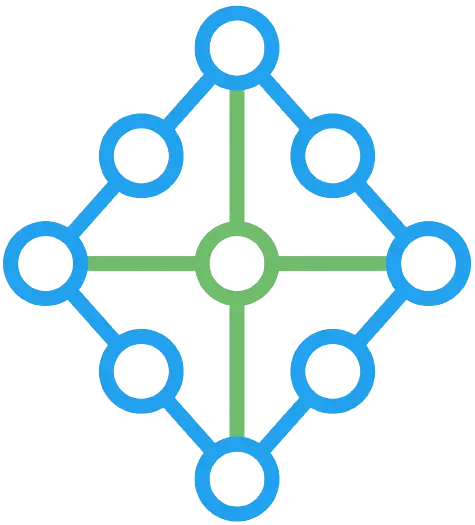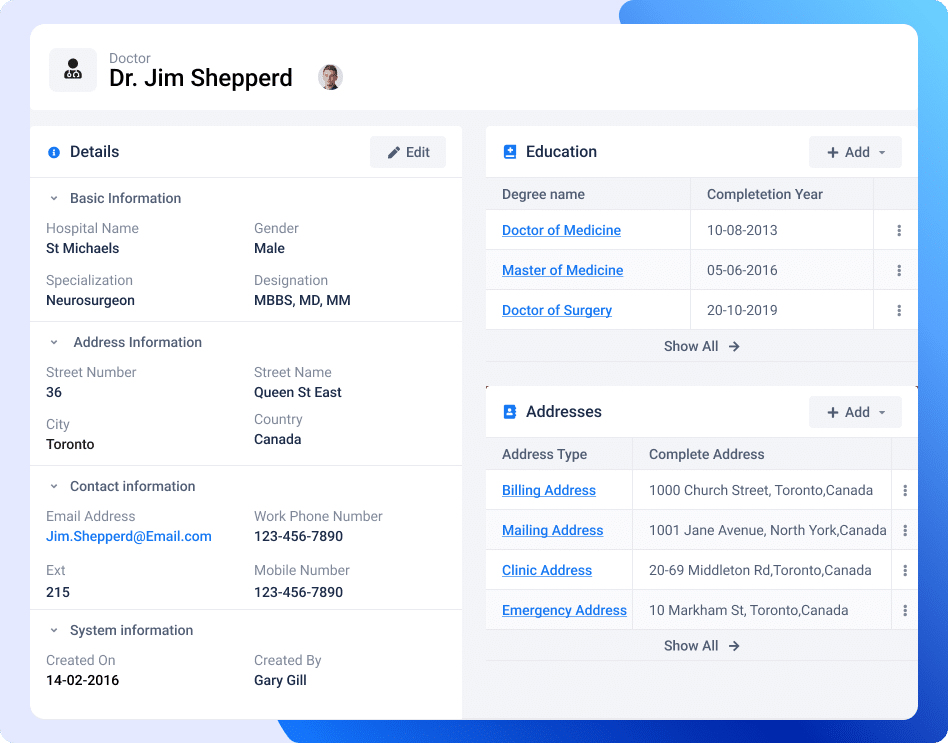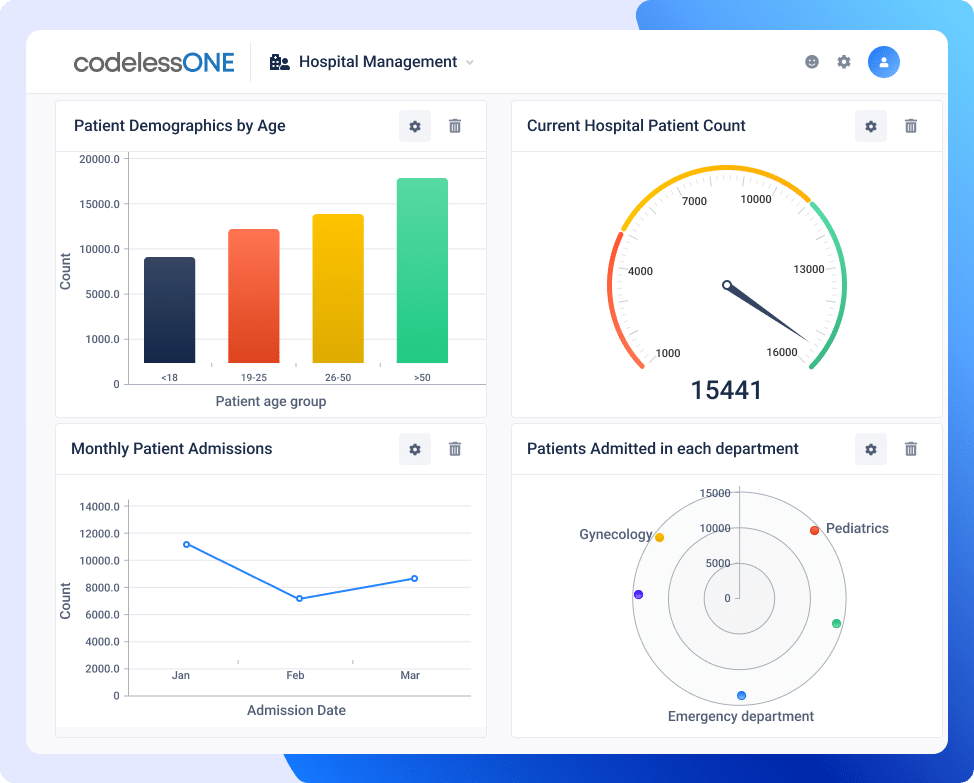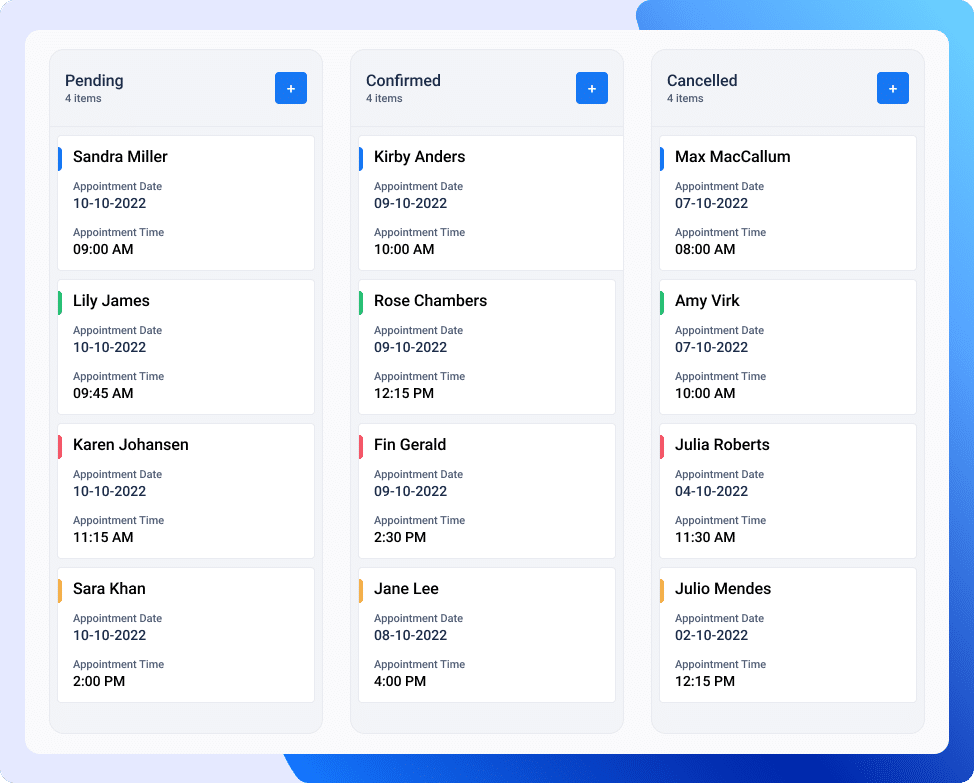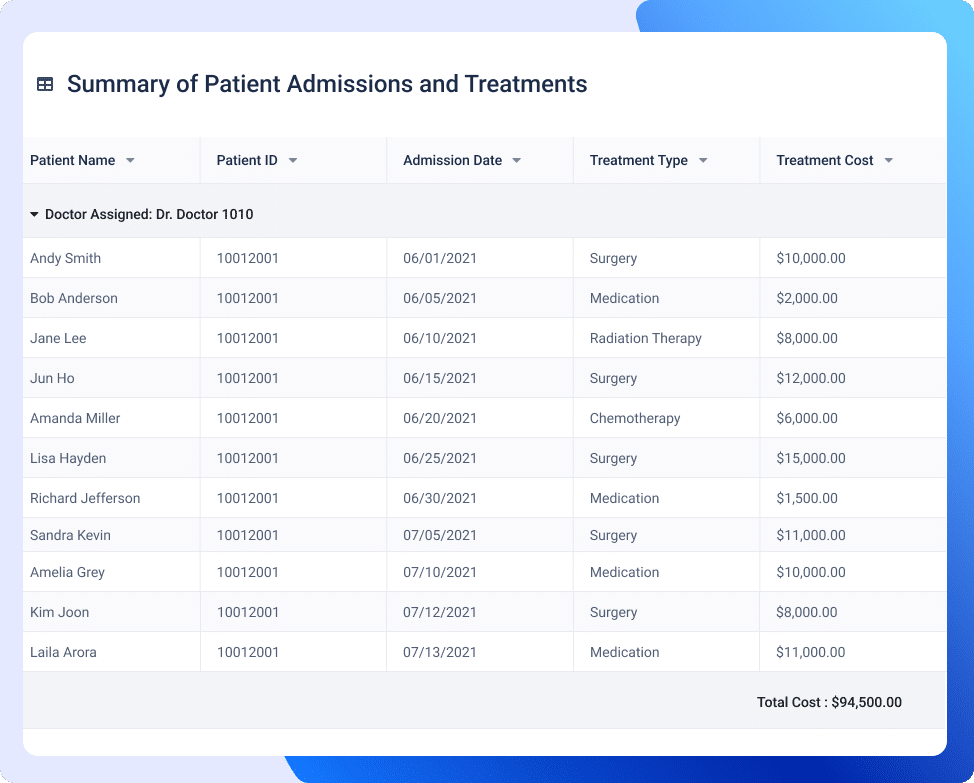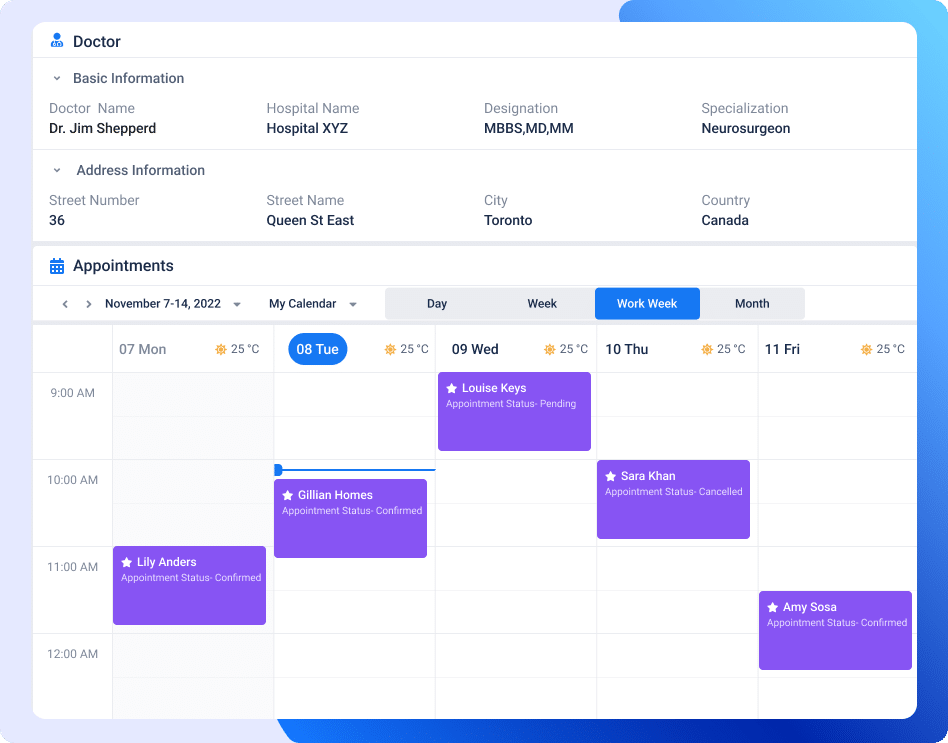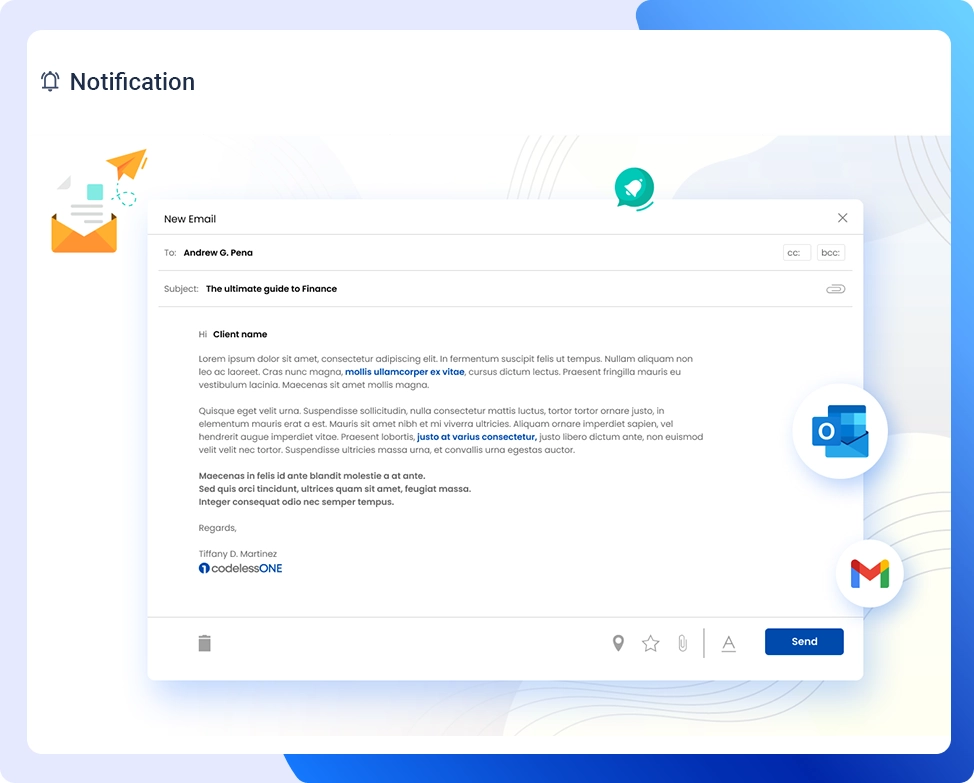Categories
Instantly access patient medical records, treatment plans, and bed allocations. Centralize all vital data ensuring smooth hospital operations and patient care.
Keep an eye on real-time bed availability, ongoing treatments, and equipment usage. Gain a pulse on hospital operations at any moment.
Track patient treatment paths from admission to discharge, including all medical interventions and consultations. Coordinate inter-departmental tasks efficiently.
Evaluate patient outcomes, departmental efficiencies, and medical inventory usage. Identify areas for operational improvement and medical excellence.
Optimally schedule surgeries, patient check-ups, and staff shifts. Ensure resources like operating rooms are appropriately utilized without clashes.
Get immediate alerts about critical patient updates, bed vacancies, or urgent medical supply needs.
Benefits and use cases of hospital management software:
It helps manage patient information, appointments, billing and insurance, staff scheduling, and inventory management. It can help hospitals to streamline administrative tasks, reduce errors, and enhance communication among staff, which can help to improve patient outcomes.
Patient-Centric Care:
Streamline patient admissions, treatments, and discharges ensuring continuity of care.
Integrated Medical Data:
Combine diagnostics, treatments, and patient feedback for holistic care decisions.
Resource Optimization:
Allocate hospital beds, medical equipment, and staff shifts with efficiency to meet patient needs.
Interdepartmental Coordination:
Facilitate seamless collaboration between medical departments, ensuring timely consultations and interventions.
Financial Management
Track billing, insurance claims, and payment collections, ensuring fiscal health.
